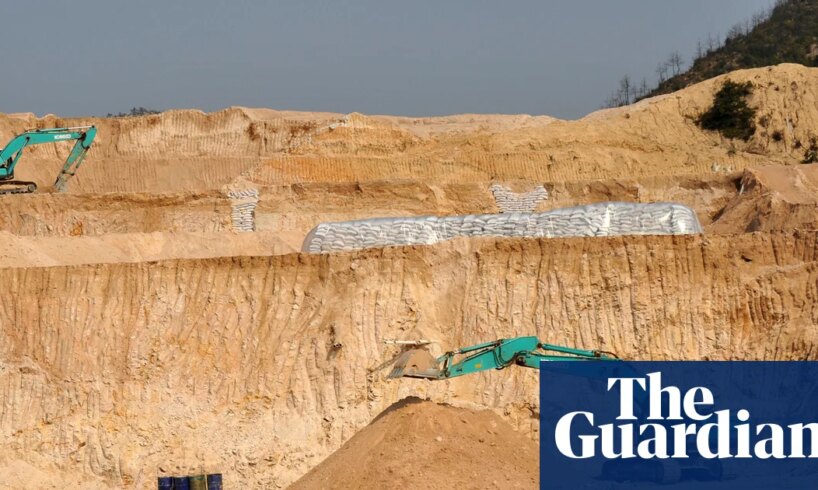
China has increased restrictions on exports of rare earths and related technologies as Beijing tightened its grip on the products that are critical for use in smartphones and fighter jets.
China’s commerce ministry announced the restrictions on Thursday, arguing damage had been caused to its “national security” from exports of the technologies – both directly or indirectly – to foreign military.
The restrictions require government permission for the export of technology used to mine, process or recycle rare-earth minerals or make magnets from it, which could have dual use. The ministry noted that permission may not be granted.
The new rules come amid tense US-China trade talks, and weeks before an expected meeting between Xi Jinping and Donald Trump on the sidelines of the Apec summit in South Korea.
Rare earths and rare-earth magnets are used in products ranging from consumer electronics and cars to jet engines and radar systems. China controls about 70% of the world’s rare-earth mining and almost all of its separation and processing and magnet manufacturing.
The restrictions also ban Chinese nationals and Chinese companies from assisting in the same processes overseas. Foreign manufacturers using Chinese machinery or components overseas are now expected to seek permission, although it was unclear how that would be enforced.
Companies hoping to export items that have even small traces of Chinese-sourced rare-earths elements must get ministry approval. Those with previously issued export licences for potential dual-use items were encouraged to “proactively present” the licences for inspection.
Most of the new rules, which took immediate effect on Thursday and expand on export restrictions first announced in April, make clear that Beijing is targeting particular industries. The announcement specified that overseas defence users would not be granted licences, the ministry said, while applications related to advanced semiconductors would only be approved on a case-by-case basis.
The ministry said that “for some time” unnamed persons and organisations had transferred rare earths and related technologies from China to overseas parties for use “directly or indirectly in military and other sensitive fields”.
“This has caused significant damage or potential threats to China’s national security and interests, adversely affected international peace and stability, and undermined international non-proliferation efforts,” it said.
skip past newsletter promotion
Sign up to Business Today
Get set for the working day – we’ll point you to all the business news and analysis you need every morning
Privacy Notice: Newsletters may contain information about charities, online ads, and content funded by outside parties. If you do not have an account, we will create a guest account for you on theguardian.com to send you this newsletter. You can complete full registration at any time. For more information about how we use your data see our Privacy Policy. We use Google reCaptcha to protect our website and the Google Privacy Policy and Terms of Service apply.
after newsletter promotion
The supply of the globally crucial rare-earth elements has become a contentious point of trade negotiations between the US and China, tested in April when a first swathe of Chinese export restrictions – launched in retaliation to Trump’s escalating tariffs on China – sparked a supply shortage.
Deals between the EU, the US and China eased the shortages, with new licences granted in recent months, but it did not completely address the issues and rare earths remain a key element of the trade negotiations between Beijing and Washington.
Tim Zhang, a founder of the Singapore-based Edge Research, told Reuters: “From a geostrategic perspective, [the new restrictions] help with increasing leverage for Beijing ahead of the anticipated Trump-Xi summit in Korea later this month.”





